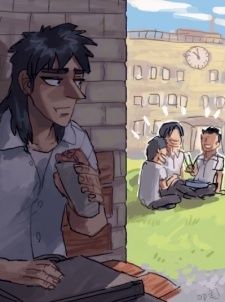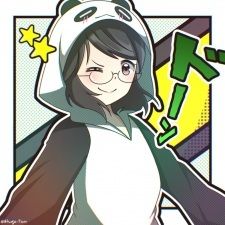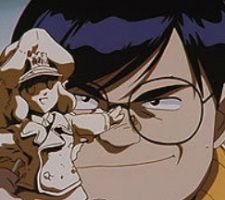Sore ga Seiyuu! (or Seiyuu's Life), is a series made for people who wants to learn more about how being a voice actor is like, at least in Japan. As someone who got into the seiyuu fandom right before discovering this anime, it came out just about at the perfect time for me. It's a shame that this show is underrated and did not get much attention in the summer season, which is when it was aired, for the reason that there were a lot of other shows that caught viewers' attention. The story focuses on Futaba, a novice seiyuu that has only two yearsto prove to her agency that she have the potential to be a long working seiyuu, even years into the future. Being inexperienced, Futaba does not have a lot of confidence in her skills and abilities as a voice actor. However, as she got more and more voice acting jobs, she met many people that she was able to learn from. These people include Ichigo and Rin (who she became close friends with through work throughout the series) Hikari, who always gives advice to Futaba--not sugarcoating what she tells her, as well as professional seiyuus like, Ryouko Shiraishi (the voice of Hayate in Hayate no Gotoku). Despite her flaws, I found Futaba to be a likable character for the reason that she's really realistic. Even though her voice isn't all that unique and/or stands out from others, she's hard working; the fact that she really tries to do all kinds of different voices (a robot, a young female warrior, a soothing narrator, a young boy) transcends being naturally talented. (***Potential spoilers.***) I was really impressed with the audition that she had in one of the earlier episodes--where she imagined herself as a female warrior in order to try and draw out the best voice that she could do to depict the character she was auditioning for. It was interesting to see the image that she had of the female warrior, and how the scenario would look like in her mind. (***Potential spoilers section over.***) If there's any cons about the characters, it would be that the show didn't have any original male seiyuu characters as one of the protagonists--or at least as one of the reoccurring supporting characters. On the plus side, the guest male seiyuus' perspectives and advice for the newer, younger generation of seiyuus was refreshing to see. Also, adding onto that, a pleasant surprise for this series would be that they have actual professional and/or well known seiyuus as guest stars (males and females included). A seiyuu who's likely the most recognizable out of all the guest stars would be Hiroshi Kamiya-san; so if you're a fan of his, his appearance(s) would be something to look forward to.
The three main protagonists were likable, however, my favorite characters from Sore ga Seiyuu!! would probably be Hikari and Konno-san. They were both characters that didn't necessarily get a lot of spotlight, but were likable even with the limited screen time they were given. Konno-san did get a whole episode focused on her; prior to the episode, I didn't know that managers not only work with seiyuu themselves but also production companies. Hikari, on the other hand, did not get a whole episode focused on her, but there was a scene where she gave valuable advice to Futaba that I found to be very memorable and educational. (***Potential spoilers.***) In episode 6, Futaba was low in spirits as she found out that she did not get called back to do the voice of one of the main protagonists for a drama CD she voiced when her career have just started. In response to Futaba, Hikari told her this: "...if the production company changes, or there are budget issues, the cast can often change between the drama CD and the anime. On top of that, they never tell you the changes ahead of time. It's painful, but it's something all seiyuu experience. ...You know, it doesn't matter to the audience if you're depressed, or hurting. No matter what happens, you have to do your work with everything you have. A family member might be in the hospital, or a pet might have died. But because it's work, no one lets that show in their attitude. That's the least a seiyuu can do to prepare for work. I think it would be rude to your fellow seiyuu otherwise. To do what is expected of you under any circumstance. That's what a professional does." Personally, I found this part to be noteworthy as it shows how strong of a person Hikari is, but also how great of a role model she is for Futaba. Futaba needs to realize this, and Hikari didn't hold anything back in what she needs to hear. If it weren't for the fact that Hikari were honest with Futaba, then she likely would not have been able to pick herself up. Sometimes, we all need someone to snap us out of it, to tell us that we have to pick ourselves up because no one else will do it for us. (***Potential spoilers section over.***)
I knew of most of the things that were mentioned about how a seiyuu's job is like, but there were things that the show talked about that I didn't know before--or didn't know much about before; for instance: seiyuus narrate audio books, when they have a role in a game, they tend to have to do a bunch of takes (as much as the sound director wants), and that for a unit to be formed, they need sponsors. However, just because you have a sponsor, it doesn't mean they will take care of everything and anything for you; sometimes, they can only do so much, and the seiyuus themselves have to figure something out--take things into their own hands, if ever needed.
It's unlikely, but I'm really hoping there will be more episodes from this series... Specials and/or OVAs would be nice, and of course, a second season would be more than welcome.
In summary:
- Recommend if you want to learn (more) about seiyuus; if you're even a little interested, it's worth checking out. It shows what goes on behind-the-scenes, such as how animation projects' staff works with voice actors.
- Characters have varied personalities; they aren't epic, flashy characters that might leave lasting impressions like some characters from per say action shows would, but they are still likable in their own ways.
- The art is simple, but fitting for this show; too complex art might be distracting.
- The dialog gets the points across; it's not too heavily focused on explanations, but rather telling through showing.
You're welcome to post a comment on my profile to tell me any feedback and/or critiques you have for my review; any feedback and/or critiques are appreciated.
***










